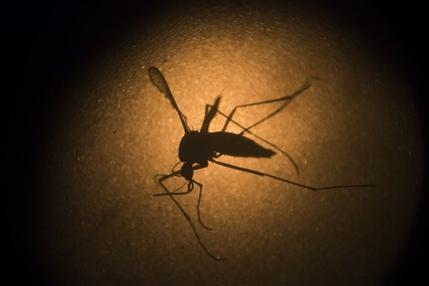 The World Health Organization said that traditional insecticide spraying has had no significant impact in slowing dengue, raising major questions about how officials might stop the spread of the Zika virus, also spread by mosquitoes.
The World Health Organization said that traditional insecticide spraying has had no significant impact in slowing dengue, raising major questions about how officials might stop the spread of the Zika virus, also spread by mosquitoes.
At the conclusion of a three-day Zika research and development meeting on Wednesday, WHO’s Marie-Paule Kieny said that “evidence is missing” that the classical ways of fighting dengue have made any substantial dent in cases. She said the same challenge might apply to Zika.
“Everything that was done in the country to control (mosquitoes) apparently didn’t work,” said Jorge Kalil, director of the Butantan Institute in Sao Paolo, Brazil, who attended the meeting. “The problem right now is it’s very difficult to fight the (mosquito), there are billions and billions of insects.”
Kalil said Brazilian officials may try a more targeted approach calling for more involvement from villages and individuals. Kalil was also optimistic that the coming winter season might help reduce mosquito populations.
Kieny said insecticide spraying and other techniques of mosquito control – some that have been used for decades – “haven’t been able to interrupt the transmission of dengue,” and it’s not known whether such methods would work with Zika.
“Certainly it is worth continuing to try to use this method for the lack of other interventions, but what the scientists said is that there is an urgent need to also put in place studies to evaluate whether it has a benefit or not,” Kieny said.
Brazilian authorities have tried to fight mosquitoes for decades, such as with techniques like deploying insecticide-sprayers in rural areas or sending out advisers to help city residents identify and root out their breeding places in homes.
Kieny also noted another possible complication: that other mosquito species beyond Aedes aegypti might spread Zika. She said that while scientists have observed that other mosquito species can carry the virus, it’s unclear if they can actually infect people.
Kieny said experts at the meeting discussed whether innovative methods like using genetically modified mosquitoes might be necessary to stop the outbreak, but noted that “extreme rigor” must be used in evaluating such new tools.
Last month, WHO declared the explosive spread of Zika in the Americas to be a global emergency, due to its link to the spike in the number of babies born with abnormally small heads and the rise in a rare neurological syndrome that can cause paralysis and death. Most people who catch Zika only experience mild symptoms like fever, skin rash and muscle pain. There is currently no licensed treatment or vaccine.
So far, Zika has triggered outbreaks in 41 countries, although confirmed cases linking Zika to babies with birth defects have only been seen in Brazil and French Polynesia. Nine countries have reported a spike in cases of Guillain-Barre syndrome, a neurological condition that typically affects people after infections.
On Wednesday, French researchers reported the first Zika-associated case of another neurological condition, call meningoencephalitis. It involves inflammation of the brain and the thin tissue that covers the brain.
The patient – an 81-year-old Frenchman – got sick in early January after a four-week cruise to New Zealand, New Caledonia, Vanuatu and the Solomon Islands. He had a fever and fell comatose.
Tests ruled out other germs that can cause the condition but found Zika. He was hospitalized outside Paris and has mostly recovered but has some weakness, Dr. Guillaume Carteux, one of the report’s authors, said in an email.
The report in the New England Journal of Medicine does not say where the man was infected. Of the cruise stops, only New Caledonia is on the U.S. Centers for Disease Control and Prevention’s list of places with Zika outbreaks. It was added on Wednesday to the CDC’s Zika travel advisory, which has more than 30 destinations, mostly in Latin America or the Caribbean.
Source: Associated Press
Filed Under: Drug Discovery




